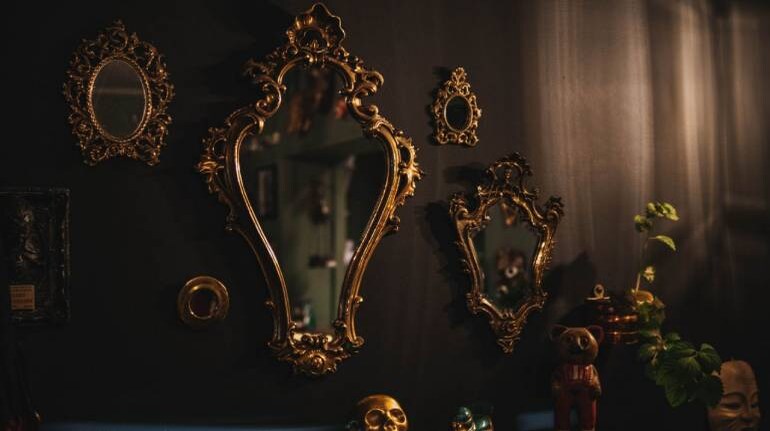
“I turn sentences around. That's my life. I write a sentence and then I turn it around. Then I look at it and I turn it around again.” In Philip Roth’s The Ghost Writer, that is how the fictional author supposedly based on Bernard Malamud describes his daily routine.
One would think that writing about such characters in fiction would be an uninteresting affair. Yet, over the years, many authors have done just that, from George Gissing to Graham Greene, from Stephen King to Paul Auster, from Michael Chabon to Don DeLillo. The results have been far from dull.
The sub-genre, if one can call it that, has seen an upsurge of titles in recent times. This isn’t simply taking to heart the cliché of “write what you know”. Contemporary writers, following their forebears, are writing about writers to explore notions of identity, representation, and more.
In Sally Rooney’s Beautiful World Where Are You, one of the main characters is an acclaimed author decidedly ambivalent about her success. As she ironically writes in an e-mail to a friend, “my sturdy peasant ancestors did little to prepare me for a career as a widely despised celebrity novelist”. These sections of the novel come across as attempts by Rooney to interrogate her own current status and answer her critics.
At times, the search for a plot itself becomes the motor of a plot. In The Plot, the latest and somewhat predictable thriller by Jean Hanff Korelitz, a novelist who has failed to live up to early potential listens to a writing student’s outline for a proposed book. Later, the student overdoses, and the novelist steals the plot for his own book, which – of course – becomes a runaway success. Before long, he starts to face anonymous threats and ultimatums of unmasking.
Similarly, in Chris Power’s debut novel, The Lonely Man, a blocked writer living with his family in Berlin chances upon another writer who tells him a tale of murky circumstances surrounding a Russian oligarch’s death. This dissolves the block, and he decides to use the material for a book of his own, with menacing real-world consequences. It adds up to a satisfying, noir-ish thriller.
Both these novels raise questions about agency, ambition, and the ownership of stories. Others have tried to show how the writing life is part of a search for selfhood. In Lily King’s Writers and Lovers, an obnoxious landlord tells a debt-burdened, struggling writer: “I just find it extraordinary that you think you have something to say.” Later, the writer thinks: “I don’t write because I think I have something to say. I write because if I don’t, everything feels even worse.”
As with any profession, the literary world lends itself to satire, which is the dominant mode of Zakiya Dalila Harris’s debut, The Other Black Girl. It begins with an out-of-place employee in a Manhattan publishing house who is delighted to find that another Black editorial assistant has been hired.
The novel takes several pot-shots at the behaviour of petulant authors and the publishing world’s attempts at greater diversity. “Do we mean diverse employees or diverse books?” enquires a literal-minded editor at one point. “Or do we mean diverse authors?” The satire takes a back seat to the intrigue around the other Black employee’s behaviour, building to a spookily surreal conclusion.
In Mona, Argentinian writer Pola Oloixarac fiercely sends up another much-publicised aspect, that of literary prizes. At the start, the eponymous character travels to Sweden for what’s called “the most important literary award in Europe and one of the most prestigious in the world”. As she spends time with other attendees, her behaviour becomes increasingly erratic, for reasons that are soon revealed. The finale is again surreal, determined to be retributive.
A less savage approach is to be found in Namita Gokhale’s Jaipur Journals. This is set in the environs of “the greatest literary show on Earth,” and revealingly juxtaposes public displays and private anxieties. Earlier, Edward St Aubyn and Filippo Bologna also spoofed the culture of awards in Lost for Words and The Parrots, respectively. (The classic, however, has to be Thomas Bernhard’s coruscating My Prizes.)
In the 1990s, Don DeLillo’s Mao II was prescient in its examination of how terrorists are taking over from writers in capturing people’s imagination. Nowadays, issues of authenticity and appropriation, of self-fashioning and self-preservation, are uppermost.
It could be that there are more such novels nowadays as a response, conscious or not, to the popularity of personal essays and autofiction. In Rachel Cusk’s innovative Outline trilogy about a writer teaching a course in Athens, for instance, there are porous boundaries between author and character. Whatever the reason, novels about the writing life, drawn from personal experience or otherwise, can travel down avenues to explore issues relevant to the wider world.
As Anna Wulf, the writer in Doris Lessing’s The Golden Notebook says: “Nothing is personal in the sense that it is uniquely one's own. Writing about oneself, one is writing about others, since your problems, pains, pleasures, emotions – and your extraordinary and remarkable ideas – can't be yours alone.”https://ift.tt/39j4Jqw
2021-09-18 02:29:12Z
CBMidWh0dHBzOi8vd3d3Lm1vbmV5Y29udHJvbC5jb20vbmV3cy90cmVuZHMvZmVhdHVyZXMvd2hhdC13cml0ZXJzLXdyaXRlLWFib3V0LXdoZW4tdGhleS13cml0ZS1hYm91dC13cml0ZXJzLTc0Nzk0NDEuaHRtbNIBeWh0dHBzOi8vd3d3Lm1vbmV5Y29udHJvbC5jb20vbmV3cy90cmVuZHMvZmVhdHVyZXMvd2hhdC13cml0ZXJzLXdyaXRlLWFib3V0LXdoZW4tdGhleS13cml0ZS1hYm91dC13cml0ZXJzLTc0Nzk0NDEuaHRtbC9hbXA

0 Commentaires